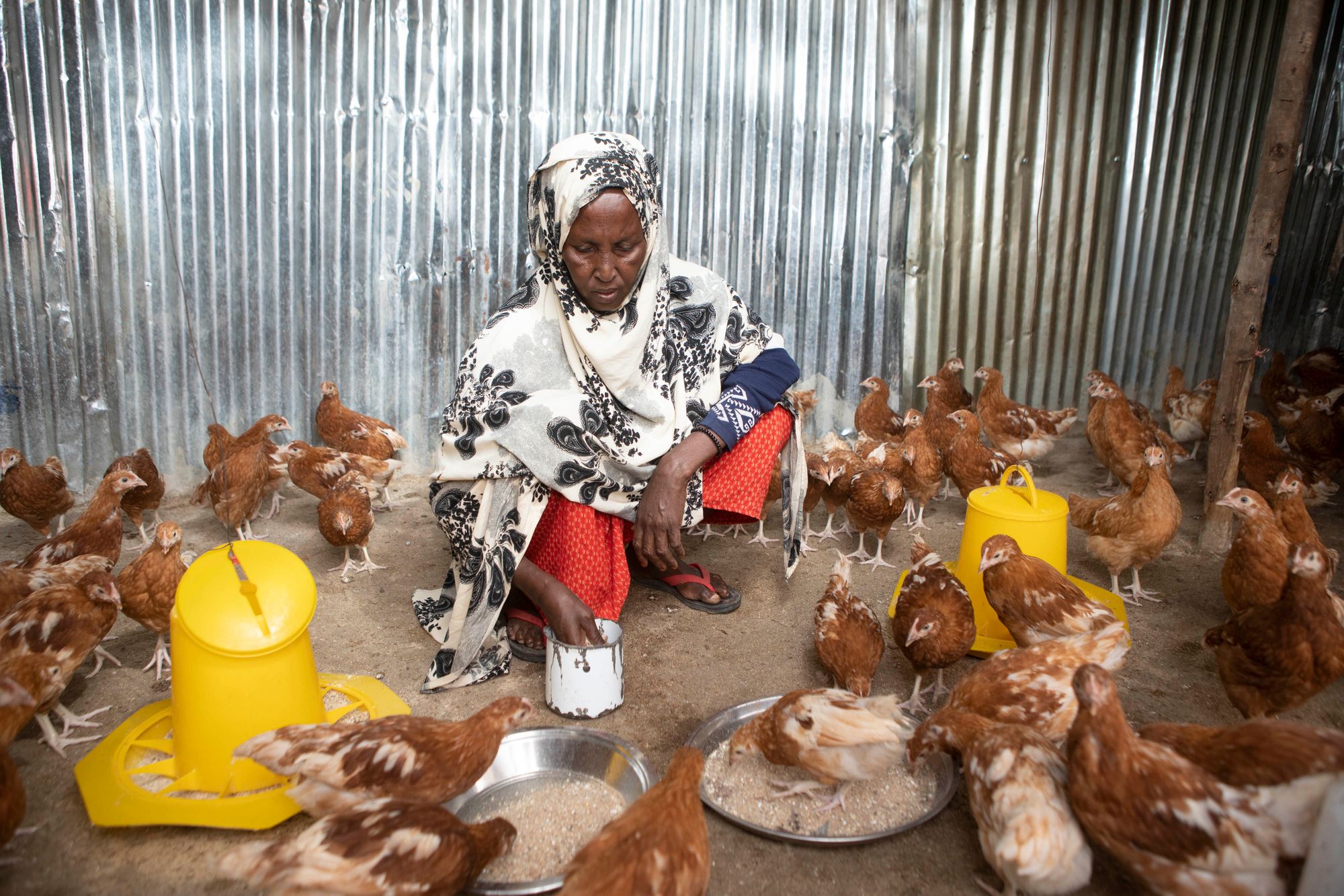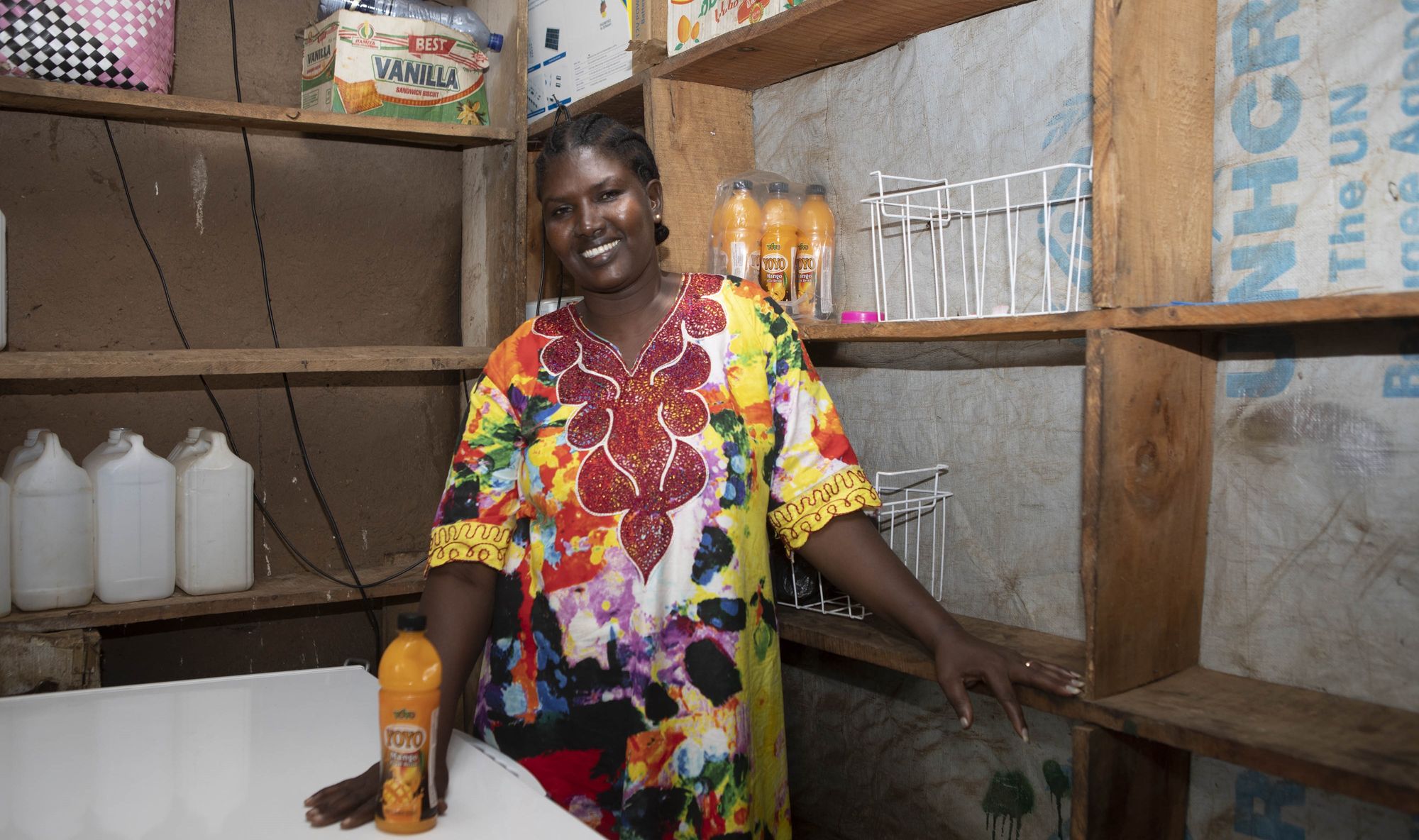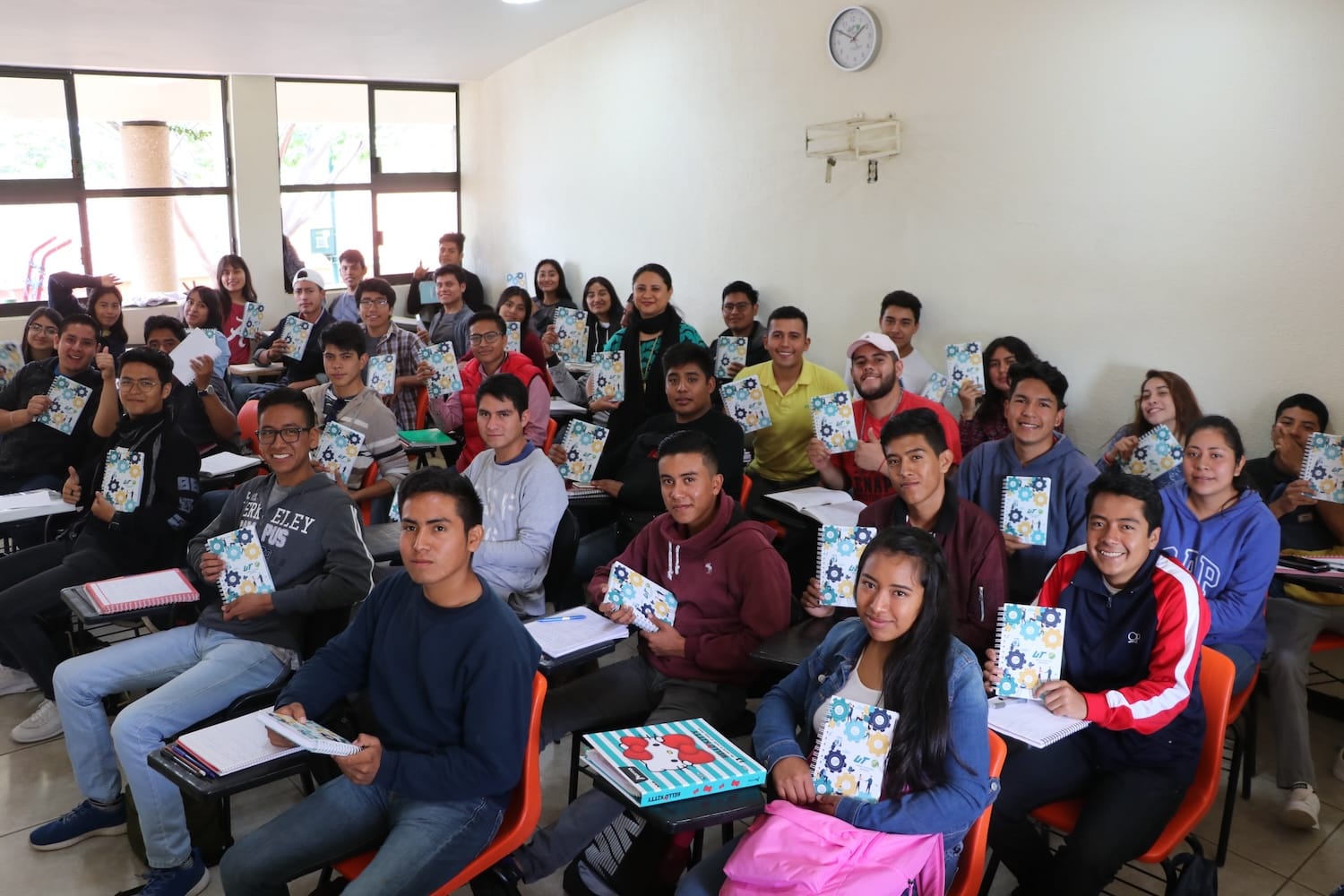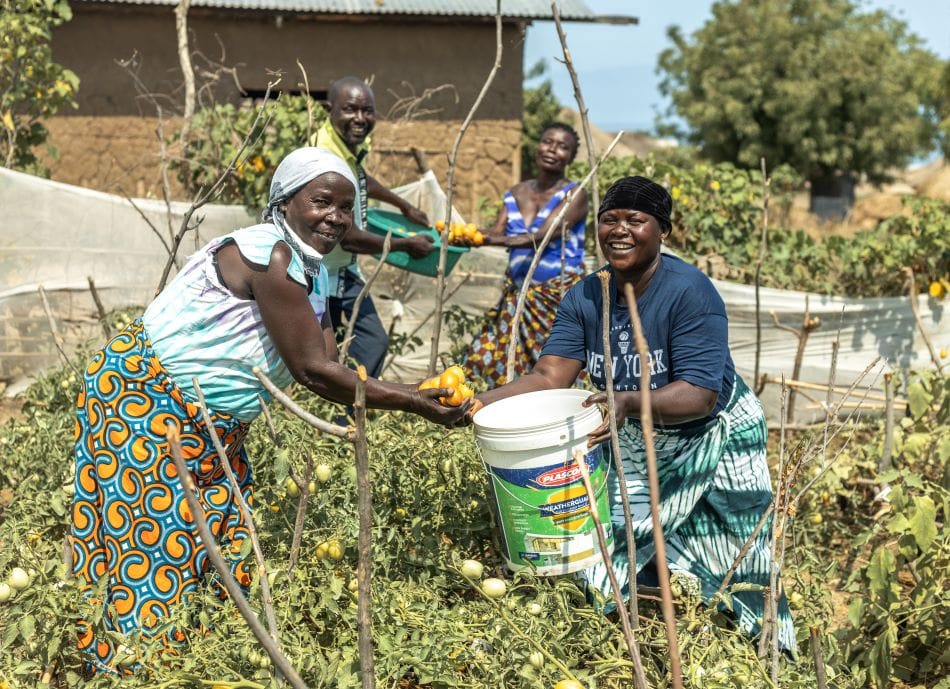Forced displacement, and the economic marginalization of refugees, is a vast and growing issue. But a UK Aid-funded project is showing that with a carefully applied program based on market systems development principles, refugees and the communities that host them can generate mutually beneficial economic growth even in remote and challenging environments. Over the past 3.5 years, Strengthening Host and Refugee Populations in Ethiopia (SHARPE) has worked directly with more than 100 businesses, brought private sector investment of more than $2 million into the marginal economies of refugee hosting regions, helped to stimulate additional business earnings of more than $30 million, and generated economic opportunities for more than 100,000 people—both refugees and their neighbors. In Part 1 of this two-part article, I explore some of the barriers we have had to overcome and the opportunities we have created. In Part 2, I will discuss in more detail how we made the project such a success.
The Global Context
The UNHCR Global Trends Report 2021 shows that people forced to flee their homes due to conflict, violence, human rights violations, and other adverse circumstances now number more than 100 million, more than twice as many as in 2012. This number includes more than 21 million refugees—people who have been displaced across an international border. Some 83 percent of refugees are hosted in low- and middle-income countries, with almost three-quarters hosted in a neighboring country. Most cross their nearest international border and stay there, usually living in camps, in resource-poor settings, with few socioeconomic rights, and facing restrictions on their ability to move and work.
The average duration of displacement for refugees is estimated to be more than 20 years. This puts a strain on host governments and communities and their resources, which can become a source of conflict. The traditional encampment approach towards refugees, providing basic shelter, services, and food aid, is also difficult and expensive to sustain over time, while the camps themselves represent a colossal waste of human resources, talent, and aspiration. With little opportunity to return home or move on to a third country, most refugees remain stuck with limited ability to earn a living.
In situations of long-term displacement, a new development-led approach is needed that complements the more traditional humanitarian system, which provides essential services to refugees but does little to help them secure jobs, run businesses, and develop sustainable incomes. Such an approach needs to strengthen the economies and livelihoods of both refugees and their host communities to support the gradual inclusion of refugees into the economy and society of the host country. This process requires host countries to grant refugees greater socioeconomic rights and freedoms, allowing them to gradually move away from the camps and become more productive members of the local economy.
Economic integration of this sort requires the private sector to play a role and the public sector to create the conditions for private sector growth in refugee-hosting regions. While UN agencies, nongovernmental organizations, and humanitarian groups create a limited number of jobs and opportunities, this is only on a small scale and usually lasts only as long as donor funding. To create sustainable jobs and economic opportunities, the private sector must be able to operate on a commercially successful basis.
Introducing a Market Systems Approach
According to UNHCR, Ethiopia currently hosts approximately 870,000 refugees—Africa's third-highest refugee population and the ninth-highest globally. In 2017, the country began transitioning from a traditional encampment approach with its Comprehensive Refugee Response Framework (CCRF), followed in 2019 by a new Refugee Proclamation that gives refugees the right to work and live outside camps. This policy, however, requires a shift in thinking and working to create the right conditions, particularly in marginal border regions where formal job opportunities are scarce. There are many barriers to overcome, both in engaging refugees in markets and stimulating private-sector investment in these remote regions.
The SHARPE program works to increase economic integration by generating inclusive economic growth that benefits host and refugee communities. Notably, SHARPE takes a market systems development approach to stimulate business and market growth in these economically marginal regions.
The program covers three border regions of Ethiopia: Gambella, which hosts more than 380,000 South Sudanese refugees, and Dollo Ado and Jijiga in the Somali region, which host approximately 250,000 Somali refugees. Most have been refugees for more than 10 years, some approaching 30 years.
Researching the Issue
In January 2021, SHARPE consortium partner Market Share Associates researched the barriers to private sector investment into refugee and host economies. Interviews were held with aid sector representatives and businesses that operate in sectors relevant to the economic lives of hosts and refugees but not currently operational in refugee-hosting regions. Most of these businesses had no first-hand knowledge of refugee markets or experience working with refugees.
To complement these interviews, we surveyed 60 medium, small, and micro enterprises (MSMEs) with experience operating in the refugee-hosting regions of Jijiga and Dollo Ado. Almost half (28) of these were refugee-owned businesses. The majority (34) were microentrepreneurs running businesses with fewer than five employees; 23 of them were small businesses (5-30 employees), and 3 were medium-sized (30-100 employees). Reflecting the additional barriers that refugees face in establishing successful businesses, all the medium-sized businesses were owned by Ethiopian hosts, with most small businesses also owned by Ethiopian citizens (16/23). In contrast, almost two-thirds (21/34) of the micro businesses were run by refugees. Two-thirds serve both hosts and refugees, and half of them employ refugees.
Of the companies that engage with refugees, it was notable that most worked with refugees as customers. Only one was in the process of engaging with refugees as suppliers (for the first time), and this was due to SHARPE. There was less engagement with refugees as employees, although it was clear that refugee business owners are much more likely to have hired refugees than Ethiopian business owners.
Barriers to Private Sector Investment
The research revealed various barriers that the private sector must overcome if it is to see refugees as a viable market opportunity, invest its resources and expand businesses into remote refugee markets.
- Refugees live in remote regions with poor infrastructure. Refugee-hosting regions are far from the capital and main commercial center, Addis Ababa, making them difficult and expensive to reach for Addis-based companies. Even for businesses based in the main towns of the refugee-hosting regions—in Jijiga, Dollo Ado, and Gambella—distance to the refugee camps is a critical impediment to starting or expanding operations into refugee markets. Poor infrastructure —unreliable electricity, lack of clean water, poor road conditions, poor telephone, and internet connectivity—and lack of access to business finance are restraining factors. Financial service providers specifically mentioned they struggle to bridge the "last mile" to serve remote communities, with limited internet and electricity impeding rural outreach.
- Companies have limited knowledge of refugees or their market potential as consumers, suppliers, or employees. Many also know little of the remote border regions where they reside. This affects the perceived attractiveness of refugees as potential customers and makes it highly unlikely that a company based in the capital city and main market center would seek to expand into refugee-hosting regions without a specific incentive.
- Negative perceptions and stereotypes of refugees make investment in refugee markets unattractive. Without firsthand knowledge of refugee economies, sometimes unfounded perceptions hold sway: that refugees have no resources; they have no money to buy goods in the market; they are aid-dependent and not interested in seeking work or running a business; they are unreliable; they may leave and return home at any time. Notably, businesses operating close to refugee camps do not share these adverse perceptions, with most acknowledging the purchasing power of refugees and welcoming them as good customers.
- Local businesses tend to be small, with many operating in the informal sector. This includes businesses run by refugees inside the camps, which face many barriers to growth. Larger "lead firms" based in the capital have no connections or relationships with these businesses, making it risky and expensive for them to invest in market development and develop viable partnerships.
- Relations between hosts and refugees can be a barrier, but only where these are tense and refugees are poorly integrated. In the Somali region, refugees are well integrated with local communities, with similar access to opportunities and resources, allowing people to find informal ways to do business. In Gambella, however, this is not the case—freedom of movement is restricted by formal rules and the prevailing security situation. Hiring refugees or even serving refugees as customers can worsen tension and cause conflict, particularly if they are perceived as competing with the host community for scarce job opportunities.
- The aid sector is seen as distorting markets. Handouts provided to refugees are perceived as impeding refugee participation in markets as customers, suppliers, and employees. These handouts distort markets and reduce demand for livelihood inputs, threatening business viability, particularly for agri-input suppliers.
- The lack of clear government policy and inconsistent policy application is a significant constraint. Despite the new Refugee Proclamation and associated directives, in practice, little has changed. Refugees still face legal and administrative restrictions on their socioeconomic rights, freedom of movement remains restricted, and work permits remain inaccessible for most—impeding their ability to run small businesses, seek work, and join the formal economy. In addition, there is no clear pathway for businesses to secure permission to access refugee camps and work with refugees, whether as clients, suppliers, or employees.
How We Made It Possible
SHARPE's research showed that private-sector investment into the businesses and economies of refugees and their neighboring communities remains unlikely without an investment partner such as SHARPE. It became clear that SHARPE would need to de-risk, subsidize, and facilitate market entry and then work closely with private-sector partners to support business growth in a way refugees and host communities can benefit. To convince the private sector to invest its resources into these unknown, risky markets, it was critical to have clear market information, a good understanding of challenges and opportunities, and good contextual knowledge, connections, and relationships.
The challenge remains real. Refugees are typically resource-poor and live in remote border regions, far from the main commercial centers. But with a careful, nuanced approach, bringing in the right private private-sector partner with impactful goods or services, SHARPE is showing that refugee markets are viable and present a good business opportunity for the right company with the right product. How we achieved this will be explored in Part 2.






